Water
Latest about water
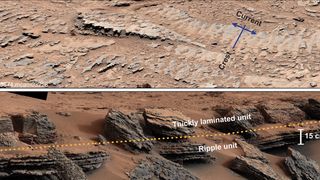
NASA rover discovers liquid water 'ripples' carved into Mars rock — and it could rewrite the Red Planet's history
By Joanna Thompson published
NASA's Curiosity rover photographed remnants of rippling waves in an ancient Martian lakebed, proving that the Red Planet had open water for longer in its history than previously thought.
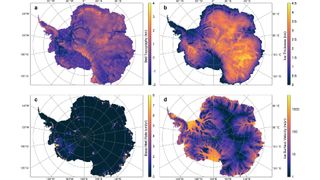
Scientists discover hidden 'plumbing' that's driving Antarctic ice sheet into the ocean
By Skyler Ware published
Maps created by combining different models of glaciers and ice sheets reveal the way water is flowing deep beneath Antarctica's ice.

What is alkaline water, and does it have any benefits?
By Manuela Callari published
Despite the health claims surrounding alkaline water, scientific evidence suggests its purported benefits may be overhyped.
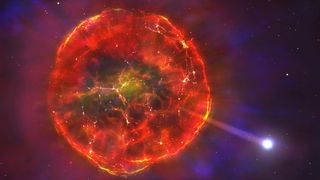
1st supernovas may have flooded the early universe with water — making life possible just 100 million years after the Big Bang
By Harry Baker published
A new study suggests that the explosive deaths of the universe's earliest stars created surprising quantities of water that may have sparked extraterrestrial life in the very first galaxies.

Stark 'drought' maps reveal just why wildfires have blazed through Los Angeles
By Ming Pan published
The state is seeing a sharp water divide this year, with lots of rain in the north while the south has stayed dry. A hydrologist explains what’s happening.

Why do we add fluoride to drinking water, and is it safe?
By Marilyn Perkins last updated
Fluoride is added to tap water in many countries around the world. But why?

What's the best way to kill norovirus, the 'stomach bug'?
By Skyler Ware published
Only certain cleaners kill norovirus, a leading cause of vomiting, diarrhea and foodborne illness. Why is that?
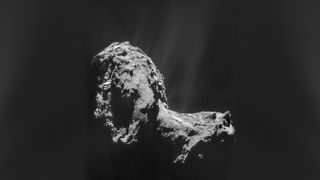
Comets played a 'major' role in making life on Earth possible, new study hints
By Deepa Jain published
A reanalysis of the data from the "rubber-ducky" comet 67P, collected nearly a decade ago, suggests comets may have deposited a lot more water on Earth than scientists previously thought.

'A harbinger of what's to come:' NASA satellites show massive drop in global freshwater levels
By Ben Turner published
NASA satellites discovered that Earth's surface has lost enough water to empty Lake Erie two and a half times since 2015. And the problem could be here to stay.
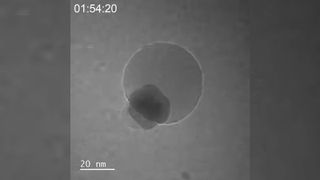
Watch atoms fuse into world's 'smallest bubble' of water in 1st-of-its-kind 'nanoscale' video
By Harry Baker published
A new study captured never-before-seen footage of hydrogen and oxygen atoms combining to form a miniature water droplet out of "thin air." The newly improved reaction could one day help astronauts make water in space.
Get the world’s most fascinating discoveries delivered straight to your inbox.


